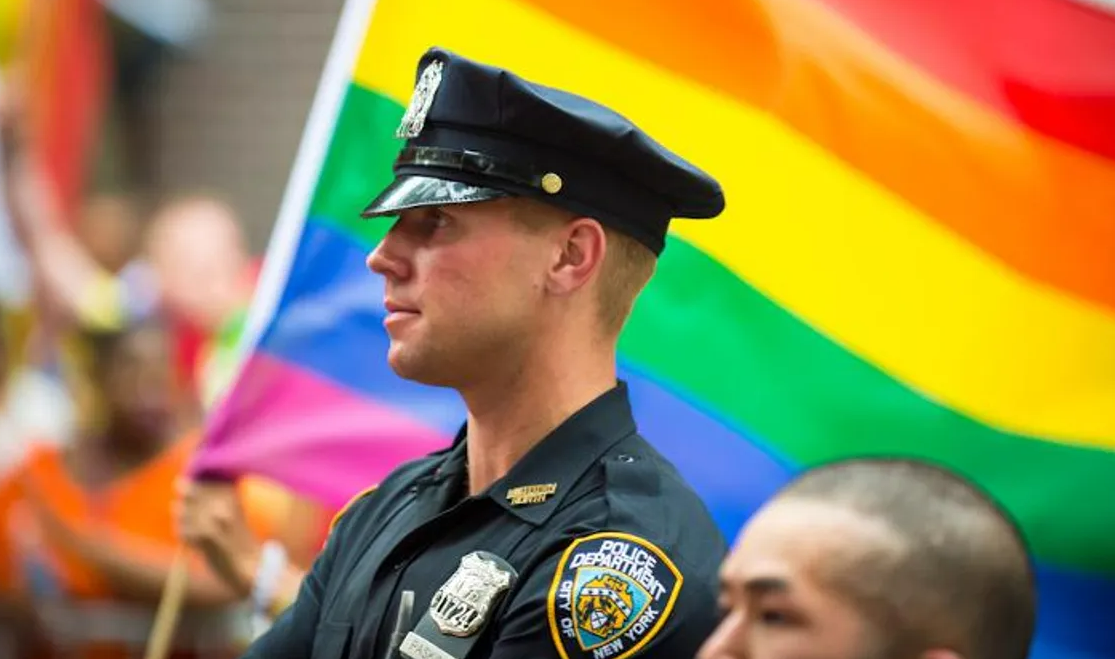LGBTQ+ Communities and Policing Disparities
Some local LGBTQ+ organizations are banning police from attending Pride events

Widespread mistreatment and harassment by law enforcement continues to sow doubt and mistrust of police among LGBTQ+ people, despite LGBTQ+ people also facing higher rates of crime victimization than their peers.
A study by NORC at the University of Chicago, the American Civil Liberties Union, in collaboration with the University of Illinois Urbana-Champaign and the University of California, Irvine, found disparities between LGBTQ+ people and non-LGBTQ+ people, and within the LGBTQ+ community in reported experiences with police. LGBTQ+ people, as a group, experience more adverse treatment by police than non-LGBTQ+ people as a group. This is particularly pronounced among bisexual, transgender, and nonbinary people, who are more susceptible to experiencing insulting language and physical force from the police.
- More than one in four (26.8 percent) of transgender people report experiencing physical force by police. Black transgender people were the most likely to have experienced physical force by the police among all LGBTQ+ people by race.
- Transgender and nonbinary respondents (44.9 percent and 33.1 percent, respectively) were significantly more likely than LGBTQ+ cisgender men (14.6 percent) to have experienced insulting language by the police.
- Almost 20 percent of LGBTQ+ people had been arrested by the police compared with 13.6 percent of non-LGBTQ+ people.
- Nearly one third of transgender people (30.7 percent) had been arrested.
LGBTQ+ people (71.0 percent) were less willing to call the police for help in the future compared with non-LGBTQ+ people (86.9 percent), and there were important differences based on sexual orientation and gender.
- Lesbian and gay people (80.4 percent) were almost as likely to say they would call the police for help as non-LGBTQ+ people (86.9 percent). However, only 68.5 percent of bisexual and 60.2 percent of queer+ people indicated that they would call the police for help in the future.
- Latine LGBTQ+ people (57.8 percent) are significantly less likely to call the police for help in the future than white LGBTQ+ people (74.1 percent)
- Transgender respondents (61.3 percent) were far less likely than cisgender LGBTQ+ men to call the police for help in the future, and approximately one-quarter of nonbinary people (27.4 percent) were willing to call the police for help. Cisgender LGBTQ+ women (71.5 percent) are also less likely to call the police for help than cisgender LGBTQ+ men.
“The harassment and mistreatment of LGBTQ people by law enforcement is fueling a crisis of criminalization and mistrust. While they’re much more likely to be survivors of physical and sexual violence, LGBTQ people are far less likely to have faith police will do anything but expose them to even more danger," stated Emily Greytak, Director of Research with the ACLU. "Fifty-five years after the police raided the Stonewall Inn, this report finds how little has changed and what can be done moving forward to help ensure the safety and dignity of all members of the LGBTQ community.”
Read more about the relationship between the LGBTQ+ community and policing organizations in "LGBTQ people have a troubled relationship with police − new survey shows high rates of harassment, abuse and distrust" at The Conversation, a nonprofit, independent news organization dedicated to unlocking the knowledge of experts for the public good.










